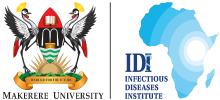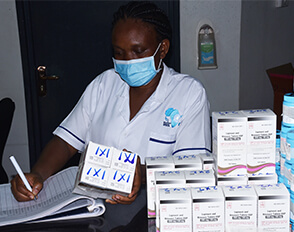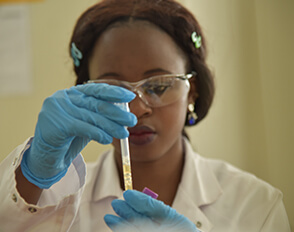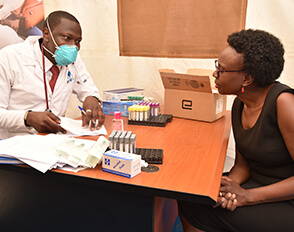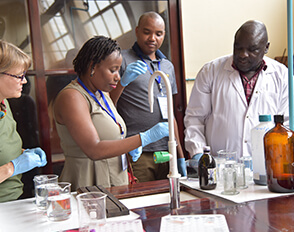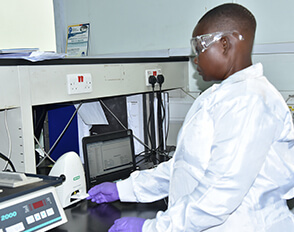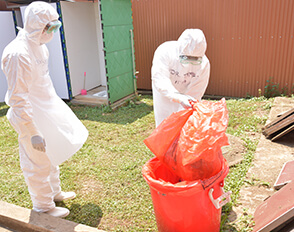
IDI’s Training Programme offers advanced and specialized courses in the management of HIV and related infectious diseases. It targets health workers and health managers in resource limited settings and aims to strengthen health systems in Uganda and sub-Saharan Africa. Areas of training include HIV, laboratory, malaria, clinical pharmacology, research and systems capacity building. The IDI Training Programme works with highly qualified national and international trainers to offer evidence-based training that matches the best training available globally. For a summary of the the projects that the Training Department is, and has been, involved with, please see our Projects and Funders page.Health workers who come to IDI are taken through the “IDI experience,” which is a careful blend of classroom, clinic and community immersion. It is an intervention that is responsive to felt global, national and community needs and is delivered by seasoned professionals in an ambiance that is friendly to professionals and individuals managing or living with HIV and related infectious diseases. Experiential learning includes self-teaching, group participation, case discussions, and hands-on clinical community practice. As much as possible, training is tailored to suit the needs and wants of the health care providers participating in the courses. In order to provide training for health care providers that minimizes disruption to work, for instance, IDI created a Virtual Learning Environment to enable health workers in locations and at times convenient for them.

Entire teams from health facilities are often trained together (multidisciplinary training); this way the different levels of providers can learn to effectively complement each other’s work and can strategize together about how to deal with systems-level challenges. By the end of the specialized training at IDI, trainees will have a comprehensive understanding of the subject matter in which they were trained, and will be able to put into practice what they have learned. Please see our Alumni Testimonies page to learn more about IDI training from the perspective of trainees.The Training Department is committed to fostering innovation in education interventions that result in building and maintaining a competent and quality health workforce for management of HIV and other infectious diseases. As such, the training department’s Monitoring and Evaluation (M&E) Department tracks and analyzes trainings to understand and develop models of capacity building that improve the practice and performance of the health workforce.
The IDI training experience does not end when the training ends. The Advanced Treatment and Information Centre (ATIC)/Learning Innovations Centre (LIC), for instance, provides a free call-in resource for health workers with questions about clinical case management, drug dosing, drug reactions, and other information. You can submit a query by calling 0800200055 or emailing queries@atic.idi.co.ug.
The ATIC/LIC also provides drug monographs, treatment guidelines, and reference charts for providers. In addition to hosting the ATIC/LIC, the Training Programme remains in contact with alumni once they return to their health facilities, and offers mentoring and support as needed, including (in some cases) on-site mentorship and support supervision.
